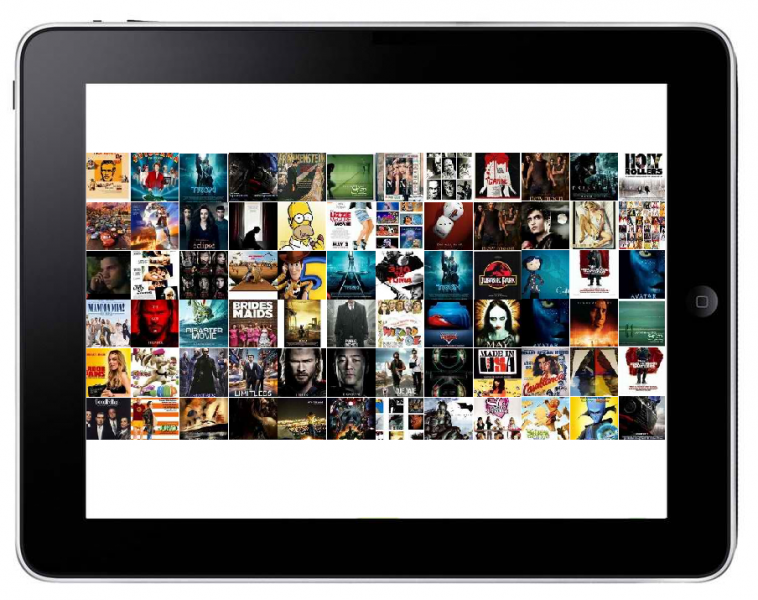Movie rentals stores have become a thing of the past. Well, at least those physical ones. As the Web continues to evolve and expand over time, we see new trends in where we get and how we watch our favorite movies and TV shows. One such trend is the emergence of online video-on-demand (VOD) websites.
VOD works like the old video rental kiosk, except this one is all online instead of offline. You select a movie or show you want to watch, pay to watch the rented title, and return it on the due date. Some VOD sites let you stream instantly as a way of renting movies or shows (stream to rent); others might also give you the option of owning the content by way of a direct download (download to own).
Let’s check out some of the major VOD providers in the U.S. today. Before signing up with any one of these, remember to check out all the features. A video-on-demand service that’s suitable to your viewing habits will certainly serve as a great addition to your home entertainment / home theater system.
Netflix
Netflix is one of the leading Internet subscription services for movies and TV shows. It offers a monthly subscription plan that costs $7.99, and with which you can watch movies and TV shows streamed over the Web to your computer, Mac, or TV. There’s also a separate subscription option for having DVDs (and Blu-ray) delivered by mail.
Like other VOD services, Netflix is designed to be compatible with Internet-enabled devices such as the Sony Playstation 3, Microsoft Xbox 360, and the Nintendo Wii. You can also watch your Netflix content on several Blu-ray players, Internet-connected TVs, DVRs, home theater systems, Apple TV, Google TV, and even mobile devices like the iPhone, iPad, and iPod Touch.
Netflix provides access to over 17,000 titles of movies and shows. One limitation, however, is that the number of offerings available on streaming plans is not as wide and expansive as those available on DVDs-by-mail plans.
VUDU
The recently launched VUDU – by Walmart.com – is another VOD service offering online movie and TV show streaming. Unlike Netflix, however, it’s available without a monthly subscription or contract: instead, you only pay for what you watch.
Because VUDU offers a wide selection that includes new movies and old favorites available for streaming (over 12,000 titles), pricing depends on what you actually rent. There are movies that cost $2 to rent for 2 nights; newer releases can cost $3.99 for 1 night. High-definition (720p or 1080p) versions – complete with Dolby Digital Plus 5.1 surround sound – are also available, but you’ll have to shell out a few extra bucks to watch them. VUDU rental periods range from one day to 72 hours (from the first time you press ‘Play’), and are available to begin watching for a 30-day period.
VUDU is available on Sony Playstation 3, Internet-connected Blu-ray players, HDTVs, Boxee, and, of course, your computer.
Amazon Instant Video
Not to be left behind in this VOD game between retailers is Amazon, which has a library of over 90,000 TV shows and movies in its Amazon Instant Video (formerly Amazon video-on-demand) service. Rental per film costs about $2.99, while shows are about $1.99 each. There’s a 24-hour window to view your rented titles, and just like with VUDU, you have press play within 30 days. To own a film, you’ll have to shell out about $15.
Amazon Instant Video, however, stands out not because of the price, but because of its high-resolution downloads / streams, which can be viewed in a variety of ways. You can watch directly from your Mac or PC using a Flash-enabled Internet browser (no need to download anything); watch on your TV through an Internet-connected device or computer; save the movie or show for later by storing it in your video library; watch anywhere using the free-to-download Amazon Unbox Video Player (not compatible with Mac or Linux, though) and from an enabled TiVo device.
Amazon Instant Video also works with several compatible HDTVs, set-top boxes, Blu-ray players, DVRs, and the Microsoft Xbox 360.
CinemaNow
One of the earliest providers of video-on-demand services, CinemaNow – launched in 1999 – is also one of the best and most highly recommended. It is now branded as the VOD service of another major retailer, Best Buy. Its rental library of films, shorts, concerts, and TV shows numbers more than 14,000, and includes a network of over 250 licensors, including 20th Century Fox, Disnet, ABC News, NBC Universal, the Sundance Channel, Sony, Lionsgate, and Warner Brothers.
CinemaNow has both stream-to-rent (from $1.99 to $3.99) and download-to-own (from $9.99 to $19.99) options, with movies and content available for viewing from home theater devices that include the HP MediaSmart TV, ARCHOS portable media players, EchoStar’s Dish Network 622 set-top box, the Samsung P2 portable media player (PMP), TiVo, Microsoft Xbox 360, selected DVD and Blu-ray players, and other media players from Archos, Dell, HP, LG, Microsoft, Nintendo, Pioneer, Samsung, and TiVo.
If you prefer to sign up for a monthly or even a yearly subscription plan, CinemaNow allows you to do that, too, at a rate of $29.95 a month or $99.00 a year.
Hulu Plus
Hulu is really more like YouTube in that it provides on-demand streaming of video content online, but its premium product, Hulu Plus, can be considered more strictly as a VOD service not unlike Netflix, VUDU, CinemaNow, and Amazon Instant Video.
How does Hulu Plus work? Well, it’s an ad-supported subscription service – about $7.99 monthly – that offers first-party exclusive streaming access to Hulu’s full-length movies, video clips, TV shows, from a variety of devices such as Blu-ray players, Internet-enabled TVs, home theater systems, Apple iOS devices, gaming consoles (Xbox 360 compatibility is coming soon, according to the company), and set-top boxes like Roku and Sony Network Media Player.
iTunes
If your home theater consists of a network of Apple devices like, say, a Macbook, an iPad, an iPhone or iPod Touch, and Apple TV, then your best bet is probably to hook yourself up with iTunes’ own VOD services. iTunes, of course, is a very easy-to-use system that has a library of over 15,000 titles of movies and shows.
Renting a film costs $3.99 for a typical new release and $2.99 for library titles; if you’re after a download-to-own option, expect to pay around $14.99. And while Apple’s iTunes isn’t exactly designed for playback on your living room’s big-screen plasma, a gadget like the Internet-enabled Apple TV can connect your Apple device to your TV via HDMI or via AirPlay Mirroring so you can enjoy a more cinematic experience. Apple TV, however, doesn’t have the ability to record your TV shows.
YouTube
It’s not exactly video-on-demand, because the selection is very, very limited, but YouTube Rentals is another potential gold mine for the world’s most popular video site. Right now, though, YouTube only has a basic pay-per-view model – about $1.99 per movie rental – and hasn’t really been promoted by Google yet, due to lack of studio-backed streaming.
Currently, the VOD services industry is being dominated by online retailers, but don’t tell that to Facebook. Early this year, the social networking site premiered “The Dark Knight” on VOD – enabling users to watch the entire film on the movie’s official Facebook page. And not just watch it, but “like” it, comment on it, even interact with Facebook friends and fans of the film.
Rental costs 30 Facebook credits – about $3 – and Facebook users have 48 hours to watch the movie. Under its agreement with Facebook, Warner Bros. has also announced that it will enable five more movies for rental and streaming on the social network, which – while it can’t compete yet in the VOD landscape – you might want to watch out for in the future.



